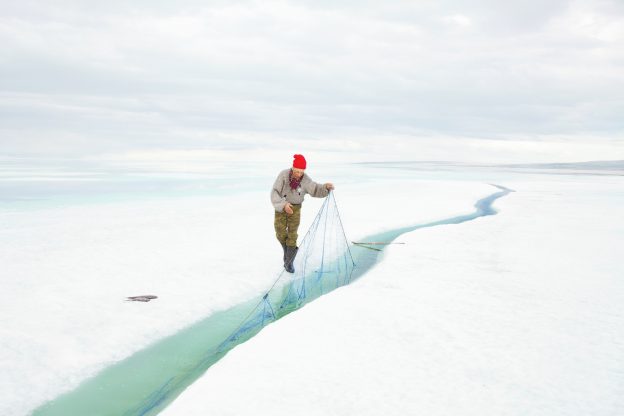Prompts for reading and writing self-reflexively
“As a classroom community, our capacity to generate excitement is deeply affected by our interest in one another, in hearing one another’s voices, in recognizing one another’s presence (hooks, 2014).”
“The environment that we create in our classrooms potentially provides the conditions under which students can not only explore global politics, but also better come to understand themselves and their place in the global political. Developing a deeper understanding of who they are and how their lives intersect with others’ lives (and with those who have come before) is a crucial part of learning to navigate increasingly uncertain times (Timperley and Schick, 2022).”
“Self-reflexivity matters as a reading practice, a listening practice, a writing practice, and a practice of critically imagining and relating to the world and to the political (Krystalli, 2023).”
Introduction
What you study in the classroom is not unattached to the worlds you live in everyday, the relationships you have, or your experiences as a complicated human being (Krystalli 2023). Self-reflexivity prompts you to ask: How does something you are learning about in the course of your studies resonate with your lived experience? What in the readings helps make sense of the world around you in a new way? Does it put anything into doubt, does it raise new curiosities or possibilities? How does it make you feel (and where), and what insights do you gain through exploring this feeling? Does anything prompt you to further ask: Who am I in relation to this? Where am I going? How will I get there? What expectations do I have of myself and others? To whom am I accountable? In other words, to read and write self-reflexively is to ask: How does my identity, the knowledge I have in relationship to others, and the moment and context I am in, shape my learning experience as a student, the expectations I have of academic study, and the possibilities I envision? How does my positionality and priviledge shape how I see the world, and what steps have I taken to step back and reflect on it (see more below)
Political self-reflexivity asks us to think about how the world is shaped by structures and relationships of power, and to situate ourselves within these structures and relations of power or to think critically about how such shape living and dying, what knowledge is valued and not, and how we feel and what we do in relation to others. As your first article argues, pedagogy is more than acquiring knowledge, it should aim to be an ontological journey of coming to know who you are and what you are learning about in relation to broader questions of power, history and the context in which you learn. It should also help orient you towards thinking about possibility, or what could be, or imagining differently and creatively about your position in and relationships within the world (i.e., What is hope? Dreams? What carries you?), and to come to embrace that which fuels you in this process of learning.
How to do self-reflexive thinking/writing/creating?
Self-reflexivity is a process of slowing down to engage with what people have said, an event witnessed, or readings you have done, in this case, in relation to this seminar on Memory and Justice. Here are some questions/prompts to get you started to help prepare your comment each week and to participate in the class:
- Self-Reflection: What in the readings resonated with my lived experience (does it connect with something you have lived through, struggle to make sense of, how you see the world and your relationships, roles and responsibilities, to a moment of learning—something that happened, or something else you read or observed)? Did any ‘concepts’ (thoughts or ideas that explain more complex occurrences) you read about stand out to you as being particularly resonate, and help you interpret things differently? You might also ask yourself: What did I learn that surprised me, that challenged, deepened or expanded how I thought and felt before? What do I want to learn more about?
- Connections: What connections did you make to other topics, moments, events, people or readings in your life? What further ideas and considerations make sense, adding to and deepening the discussion so far? What is missing or was unsaid? What does this silence or absence speak to? What curiosities and further questions arise? How is it relevant to make sense of power and possibility?; Do the readings for this week support and/or challenge concepts from previous weeks?
- Positionally is the belief that a person’s social identity and location in relation to others shapes/structures of power shape how they understand and engage with the world. A few questions to ask yourself: How do I see power operate in what I read/witness/reflect on, and how does my positionaly shape this relationship to them? In what ways does this relate to broader political and social histories I am a part of? How might it be shaped by gender, age, race/ethnicity, ability, sexuality and other intersectional identities? How will it help me do this work for life? How did I witness people strive to work through, persevere or transform these power relations? How do the protagonists exercise or express agency? How does what you are learning, connecting to, or witnessing, inspire you to think anew about what is possible, what is life-affirming, what could be? How does it prompt you to imagine differently and creatively about your position in, and relationships within the world?
“The classroom remains the most radical space of possibility in the academy.” – hooks (2014)
Resources
- hooks, bell. Teaching to transgress. Routledge, 2014.
- Krystalli, Roxani (2023) Teaching and Learning Reflexivity in the World Politics Classroom. International Political Sociology, https://doi.org/10.1093/ips/olad018
- Timperley, Claire and Kate Schick, Hiding in Plain Sight: Pedagogy and Power, International Studies Perspectives, Volume 23, Issue 2, May 2022, Pages 113–128, https://doi.org/10.1093/isp/ekab002
